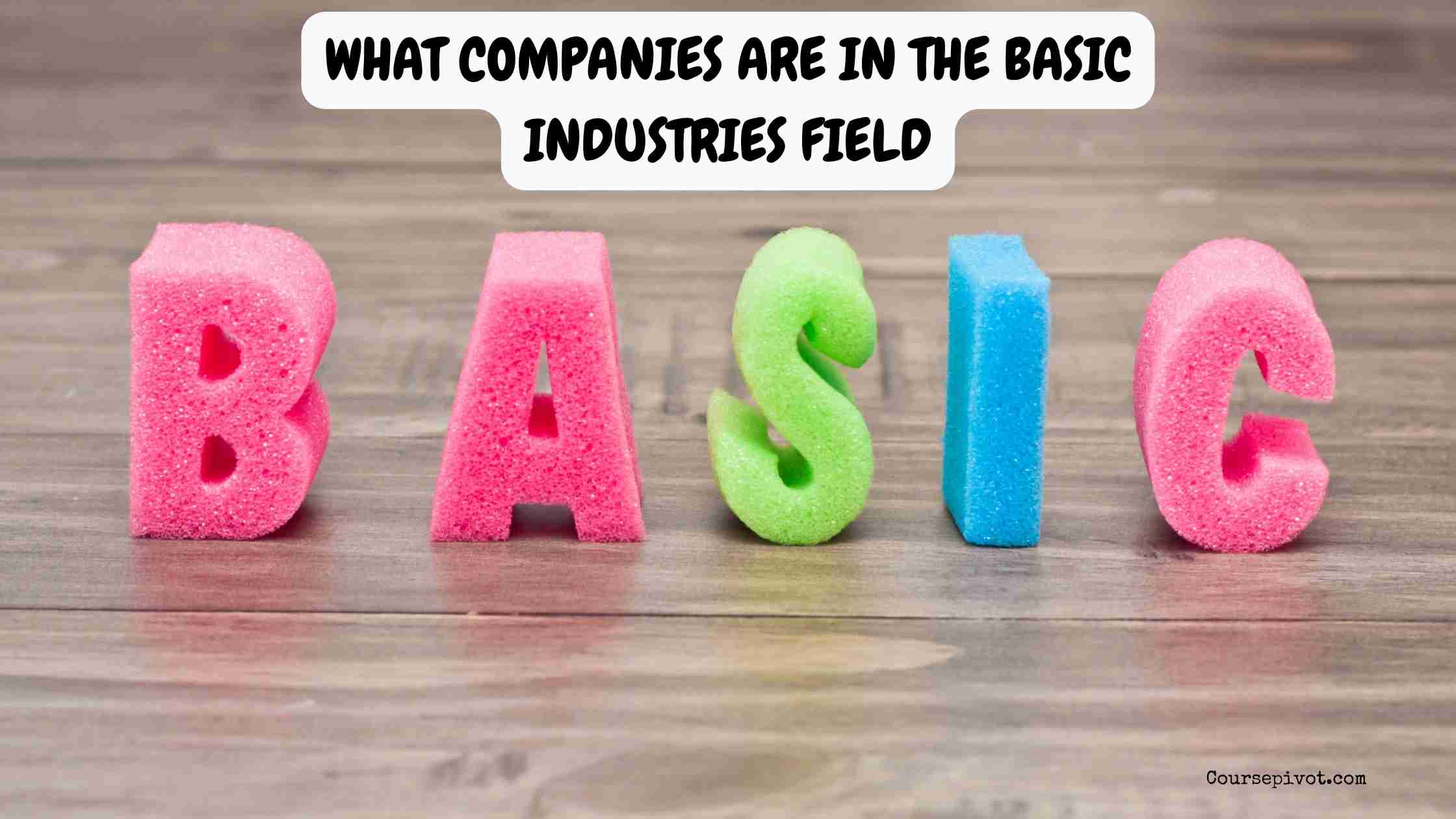
What Companies Are in the Basic Industries Field?
The basic industries field is the foundation of the global economy, supplying raw materials and essential goods like metals, chemicals, and crops that other sectors rely on to produce finished products. I’ve been struck by how these companies, from mining giants to agricultural leaders, quietly power everything from construction to consumer goods, often with remarkable resilience. Understanding what companies are in the basic industries field highlights the key players driving this critical sector.
Table of Contents
In this article, I’ll outline five key categories of basic industries companies with examples, based on my research and insights into the industry as of May 2025. These categories showcase the sector’s diversity. Let’s dive into who’s providing the raw materials for our world and their vital role in economic stability.
Ever wondered who supplies the steel for your car or the grain for your bread? It’s a sector of unsung heroes fueling global production. Ready to explore five categories of basic industries companies?
Basic industries are the backbone of modern life, turning raw resources into the building blocks of industry. I’ve seen how their work underpins everything we use. Let’s uncover what companies are in the basic industries field.
1. Mining and Metals
These companies extract and process minerals, metals, and ores, supplying materials for construction, technology, and manufacturing. This is a core category in the basic industries field. I’ve been amazed by their global scale and impact.
- Examples. BHP Group ($150B market cap), Rio Tinto ($120B), Southern Copper ($100B), per 2025 Yahoo Finance.
- Impact. BHP, the world’s largest mining firm, produces 250M tons of iron ore annually, supporting 30% of global steel production, per 2024 company reports.
- Others. Newmont (gold mining), ArcelorMittal (steel), per 2025 Investopedia.
Why it matters? Mining provides metals for infrastructure and tech, driving industrial growth.
2. Oil and Gas Extraction
Oil and gas companies explore, extract, and refine energy resources, fueling transportation and industry. This basic industries category is a global powerhouse. I’ve noticed their shift toward sustainability.
- Examples. ExxonMobil ($500B market cap), Chevron ($280B), Valero Energy ($50B), per 2025 Yahoo Finance.
- Scale. ExxonMobil produces 4M barrels of oil daily, meeting 5% of global demand, per 2024 EIA; Chevron operates in 180 countries.
- Others. ConocoPhillips (upstream focus), BP (renewable investments), per 2025 Forbes.
Why it’s key? Oil and gas remain critical energy sources, despite renewable growth.
3. Agriculture and Food Production
Agricultural companies grow crops, raise livestock, and process food, feeding billions. This category in the basic industries field is vital for survival. I’ve been impressed by their role in global supply chains.
- Examples. Cargill ($160B revenue), Archer-Daniels-Midland (ADM, $90B), Tyson Foods ($50B), per 2025 Zippia.
- Reach. Cargill supplies 20% of U.S. grain exports; ADM processes 30M tons of soybeans yearly, per 2024 company data.
- Others. Deere & Company (farm equipment), Bunge (oilseeds), per 2025 SuperMoney.
Why it matters? Agriculture ensures food security and raw materials for textiles and biofuels.
Read our blog on companies in the nondurable commodities
4. Chemical Manufacturing
Chemical companies produce essential compounds for pharmaceuticals, agriculture, and plastics, supporting diverse industries. This basic industries category drives innovation. I’ve seen their impact on everything from medicine to packaging.
- Examples. Dow ($50B market cap), DuPont ($30B), BASF ($60B), per 2025 Yahoo Finance.
- Scope. Dow operates in 160 countries, producing $45B in 2024 sales for plastics and adhesives; BASF supplies 90% of U.S. agrochemicals, per company reports.
- Others. PPG Industries (coatings), LyondellBasell (polymers), per 2025 Investopedia.
Why it’s significant? Chemicals are foundational to modern manufacturing and health care.
5. Forestry and Paper Products
Forestry companies manage timber and produce paper, packaging, and wood products, supporting construction and consumer goods. This category of basic industries companies balances sustainability and demand. I’ve been intrigued by their environmental adaptations.
- Examples. International Paper ($15B market cap), Weyerhaeuser ($25B), WestRock ($20B), per 2025 Yahoo Finance.
- Impact. International Paper produces 20% of U.S. packaging, with $19B in 2024 sales; Weyerhaeuser manages 12M acres of timberland, per 2024 reports.
- Others. Sealed Air (packaging solutions), Rayonier (timber REIT), per 2025 SuperMoney.
Why it matters? Forestry supplies sustainable materials for building and packaging.
Read our blog on companies in the finance sector
What’s Next for You
Understanding what companies are in the basic industries field is like seeing the roots of the global economy. I’ve been inspired by how these five categories—mining, oil and gas, agriculture, chemicals, and forestry—include giants like ExxonMobil ($500B market cap) and Cargill, per 2025 Yahoo Finance, supplying raw materials for 80% of manufactured goods, per 2024 BLS. With the sector employing 24M U.S. workers and exporting $1.6T in goods, per 2019 BestColleges, its stability is unmatched. Ignoring it overlooks economic foundations; engaging offers career and investment potential. Will you bypass these industry titans, or explore their opportunities?
Here’s how to act:
- Seek jobs. Browse Indeed for roles at Chevron or Dow, with 901,000 U.S. jobs in 2024, per Globemonitor.
- Invest wisely. Track BHP or Cargill on Yahoo Finance, as basic industries resist recessions, per Investopedia.
- Stay informed. Follow SuperMoney or Reuters for trends like AI in mining or sustainable forestry.
Basic industries fuel global progress. Why it matters is about stability and growth. Start today to connect with the companies powering our world.
Cite this article
You can copy and paste your preferred citation format below.
Martin, L. & Arquette, E.. (2025, May 31). What Companies Are in the Basic Industries Field?. Coursepivot.com. https://coursepivot.com/blog/what-companies-are-in-the-basic-industries-field/



